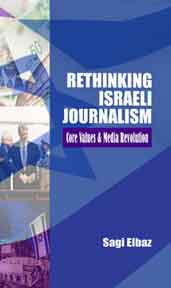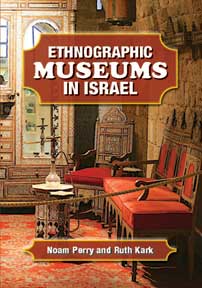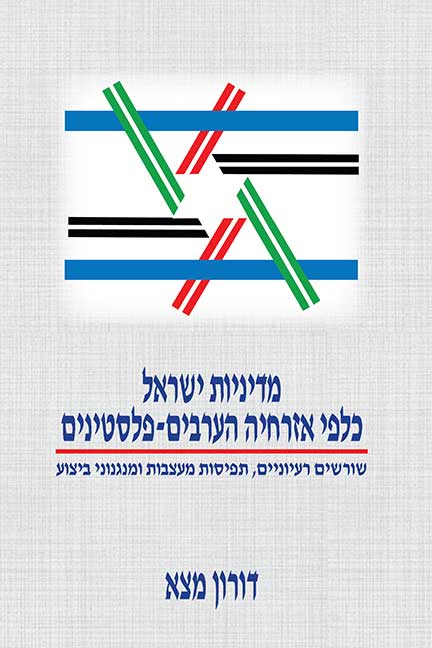Authors
Oz Almog
Prof. Oz Almog is a sociologist and historian at Haifa University (Department of Israel Studies), specializing in Social Semiology; Social History of Israel; Israeli Dominant and Popular Culture; Subcultures and Lifestyles in Israel.
He has published numerous scholarly and popular articles, in Hebrew and English, as well as numberous books.
His books The Sabra: The Creation of the New Jew (The University of California Press, Berkeley, 2000) and Farewell to Srulik - Changing Values Among the Israeli Elite (Zmora Bitan and Haifa University Press, 2004) were best-sellers and perceived as text books on the Israeli Elite and Youth.
Moshe Berent
Dr. Moshe Berent teaches in the department of Sociology, Political Science and Communication at the Open University in Israel. He writes on nationalism and Israeli national Identity. Dr. Berent is the author of the Hebrew edition of the present book (2009), and co-author with Joseph Agassi and Judith Buber Agassi of “Who is an Israeli?” (Hebrew, 1991).
A Nation Like All Nations |
| Toward the Establishment of an Israeli Republic |

Sagi Elbaz
Sagi Elbaz is a Postdoctoral Fellow at the School of Education, Tel Aviv University, and serves as a Visiting Lecturer at the Government and Society School in Academic College of Tel Aviv-Yaffo. His Ph.D. dissertation was awarded as the best dissertation in Political Science in 2013 by the Israeli Political Science Association. His research interests include Political Communication, Elites and Minorities Representation, Media-Military Relations, Peace Journalism, and Culture of Conflict. He has published several scholarly and popular articles, in Hebrew and English, as well as two research books in political communication, in Hebrew: Minority Opinion in the Hebrew Press: Representation of the Arab Population in a Changing Public Sphere (Tel Aviv: Dyonon Publishing, 2013); and Loyalty to the Source: Media, Ideology and Political Culture in Israel (Tel Aviv: Resling, 2014).
 |
Rethinking Israeli Journalism |
| Core Values & Media Revolution |
Dalia Gavriely-Nuri
Dr Gavriely-Nuri received a LL. B from the faculty of Law of Hebrew University in 1987. She received an MA in 1999 from the Department of Comparative Literature of Tel Aviv University and a further MA in Security Studies from Tel Aviv University. She received her Phd from Tel Aviv University in 2006. She has been a visiting scholar at the University of California Berkeley. She is Aa research fellow at the Truman Institute for Peace Research, the Hebrew University of Jerusalem and Senior Lecturer, Hadassah Academic College Jerusalem, Department of Politics and Communication. Her other books include The Normalization of War in the Israeli Discourse, and ‘Peace’ In Israeli Political Discourse..
|
NIKMAT HANITZACHON |
| HaTarbut HaYisraelit Baderech L’Milchemet Yom HaKippurim |
Ariel Hurwitz
Ariel Hurwitz was born in New York and settled on Kibbutz Galon in Israel. He served in the Israeli Army and was wounded in action. He received his Ph. D. from the Institute of Contemporary Jewry at the Hebrew University Jerusalem and has taught Jewish History and Holocaust Studies at Zafit High School, the Kibbutz Teachers College and the Open University in Israel. Dr. Hurwitz is the editor of Moreshet, an academic journal for the study of the Holocaust and Antisemitism, and lectures at Yad Vashem and at seminars. He has written a number of articles as well as a textbook on the Holocaust for the Open University, and Against the Stream, the history of a Zionist Youth Movement.
|
Jews Without Power |
| American Jews During the Holocaust |

Ruth Kark
Ruth Kark Professor of Historical Geography at the Hebrew University of Jerusalem has written and edited 25 books and 200 articles on the history and historical geography of Palestine/The Holy Land/Israel. She has published several books and articles on Jerusalem in the last two centuries (see: http://geography.huji.ac.il/).
Her research interests include the study of concepts and patterns of land and land ownership in traditional and civil societies including Palestine/Israel and the Middle East, 1800 to the present day; indigenous people and landownership; urban history and the Middle Eastern city; settlement processes; Western civilizations, ideologies, interests, activities and interactions with the local populations in the Holy Land, including religious, cultural and material concepts of the Holy Land, as well as interrelations and impacts, Church properties, missions, consuls, communes, settlers, pilgrimage and tourism.
Her recent studies and publications focus on women and gender; Sephardi and Mizrahi (MENA) Jewish entrepreneurship, Christian Communes, and ethnographic and historical museums in Palestine/Israel; Bedouin in the Middle East and Palestine/Israel and their land claims, global indigenous and Bedouin land rights; and dissent and conflict surrounding landownership in Israel (Churches vs their lay communities, Bedouins vs the State, among others).

Ruth Katz
Ruth Katz (Ph. D. Columbia University) is one of the founding members of the Department of Musicology at the Hebrew University of Jerusalem. Upon receiving the prestigious Israel Prize in 2012, her work was cited for shedding light on such things as the interdisciplinary processes implicated in “the origin of opera, the history of Western notation, the relationship of stylistic change to the history of ideas, music’s place in philosophy, and the role of musical aesthetics in cognition. ” She founded the Excellence Program at the University and co-founded the Laboratory for the study of music. Her most recent book, hailed as “magisterial, ” is entitled A Language of Its Own: Sense and Meaning in the Making of Western Art Music (University of Chicago Press, 2009). It is an analysis of the decisions that underlay the crafting and understanding of stylistic change.
|
The Discursive March of Thought |
| An Interdisciplanary Roadmap |

Doron Matza
Dr. Doron Matza is a researcher and lecturer in the field of Jewish-Arab conflict, as well as an educator. Written at Ben-Gurion University of the Negev, his doctoral dissertation dealt with the institutional discourse on the Arab-Palestinian minority. Dr. Matza teaches at Achva College, serves as a visiting researcher at the Arab Israel Research Program in the National Security Research Institute. He regularly publishes articles and presents research in a variety of other pre" and in various forums. Previously, Dr. Matza held senior positions in the Israeli intelligence and security systems.

Noam Perry
Noam Perry is an associate in the Economic Activism Program at the American Friends Service Committee and teaches in the Human Rights Program at San José State University. He has a B.Sc. in Physics and the Humanities from the Hebrew University of Jerusalem; a M.A. in Geography, Planning and Environment, with an emphasis on historical geography, from the Hebrew University of Jerusalem; and a Ph.D. in Law, Policy and Society from Northeastern University in Boston. His research interests include ethnographic museums, human rights, and human trafficking. His recent studies and publications focus on international pressure mechanisms toward the realization of human rights, particularly in the case of human trafficking

Izhak Shnell
IZHAK SCHNELL is Professor in the Department of Geography and Human Environment at Tel Aviv University. He specialized in environmental and socio-spatial impacts of global processes. He has been the president of the Association of Israeli Geographers and is the representative of the Israeli Academy of Science in the International Geographical Association

Eliav Taub
Dr. Eliav Taub is a Senior Lecturer in the Department of Political Science at the Ashkelon Academic College, as well as a lecturer for Bar Ilan University in their Interdisciplinary Social Science Department. Dr. Taub earned his rabbinic ordination from the Chief Rabbinate of Israel. His research focuses primarily on the fields of public administration and the relationship between religion and its leaders.
|
|
Rabbis and Politics |
| Leadership Approaches of Rabbis Ovadia Yosef & Elazar Shach ; |



